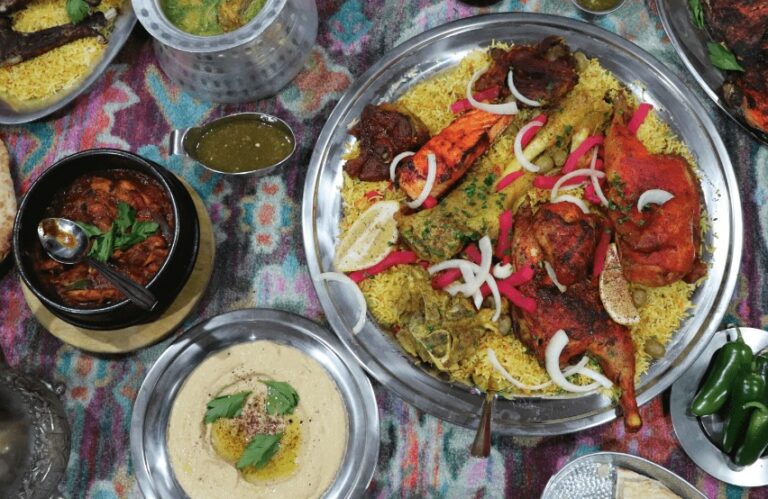Introduction to Yemeni cuisine
Yemeni cuisine is a blend of African, Middle Eastern and Asian flavors and is known for its unique spices, fresh ingredients and rich flavors. The cuisine is heavily influenced by the country’s rich history and culture, which has been shaped by its location on the ancient spice and incense routes. Yemeni food is typically prepared with a focus on community, with large portions of food being shared amongst family and friends.
Basic ingredients in Yemeni cooking
Yemeni cooking is characterized by its use of spices, herbs, and vegetables. The most commonly used spices include cumin, coriander, turmeric, and black pepper. Herbs such as parsley, cilantro, and mint are also frequently used. Vegetables such as eggplant, tomato, and onion are staples in many Yemeni dishes. Meat, particularly lamb and chicken, is also used in many dishes.
Traditional cooking methods in Yemen
Yemeni cuisine is known for its unique cooking methods, with many dishes being prepared in traditional clay pots called Madara. These pots are used to cook stews, soups, and rice dishes. Another traditional cooking method is Tanoor, which is a type of clay oven used to bake bread and cook meat dishes. Yemeni cuisine also features the use of a unique spice blend called Hawayij, which is used to season many dishes.
Popular Yemeni dishes and their preparation
One of the most well-known Yemeni dishes is Mandi, which is a rice dish made with tender, slow-cooked lamb or chicken. The meat is cooked in a Tanoor oven, giving it a smoky flavor, and is served on a bed of fragrant rice. Other popular dishes include Saltah, a meat and vegetable stew, and Lahoh, a type of pancake eaten with honey or jam.
Yemeni dining etiquette and customs
In Yemeni culture, food is often served on a large plate or platter and shared amongst everyone at the table. It is customary to eat with your right hand, and it is considered impolite to use your left hand or to touch the food with your fingers. It is also customary to leave a small amount of food on your plate as a sign of respect to the host.
Preserving Yemeni culinary traditions
Yemeni cuisine has a long and rich history, and efforts are being made to preserve it for future generations. Many traditional restaurants and cafes serve authentic Yemeni dishes, and culinary schools are teaching the next generation of chefs. Additionally, Yemeni expatriate communities around the world are working to keep the cuisine alive, often by hosting traditional cooking classes and events. By preserving these culinary traditions, Yemeni cuisine will continue to be enjoyed for years to come.

